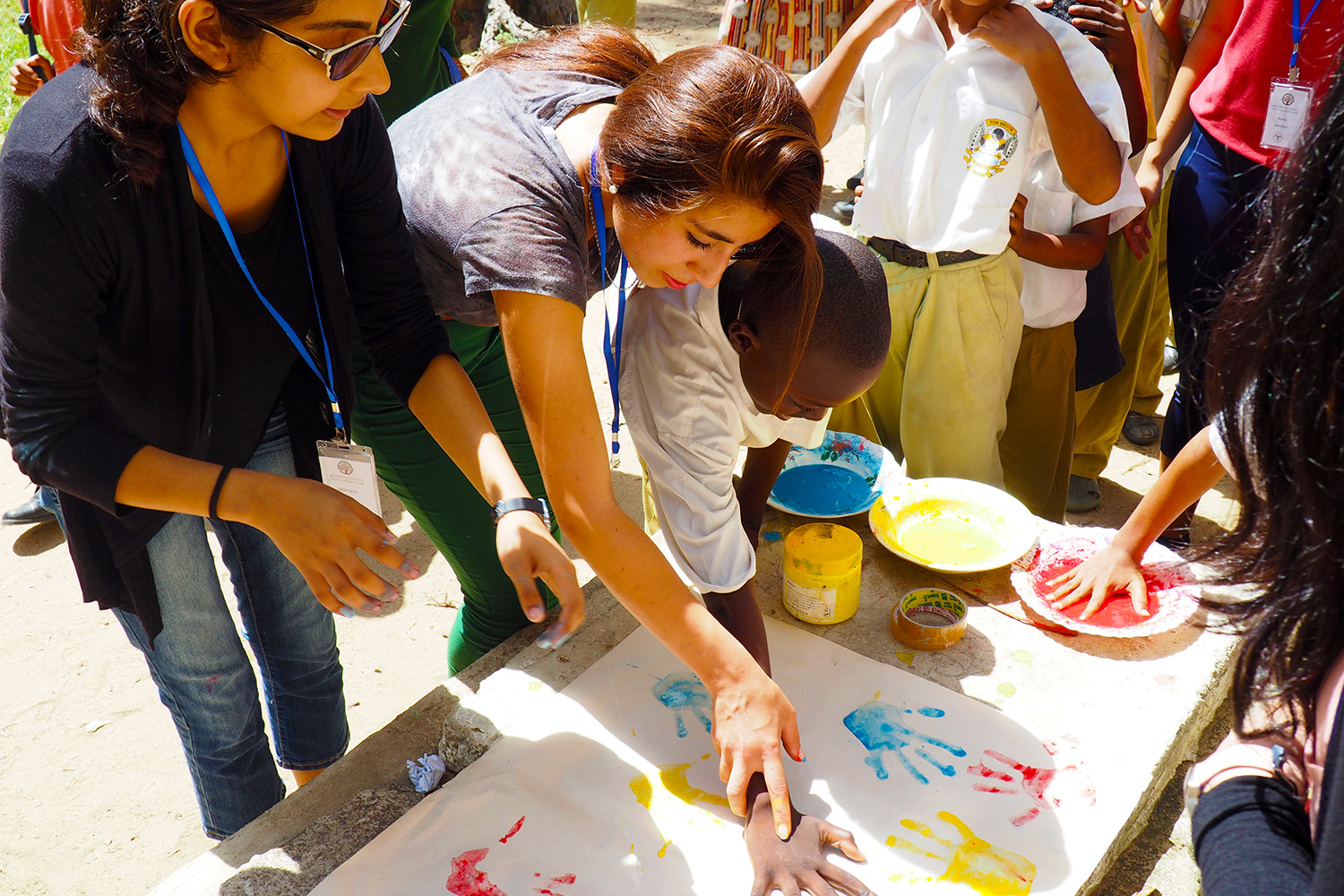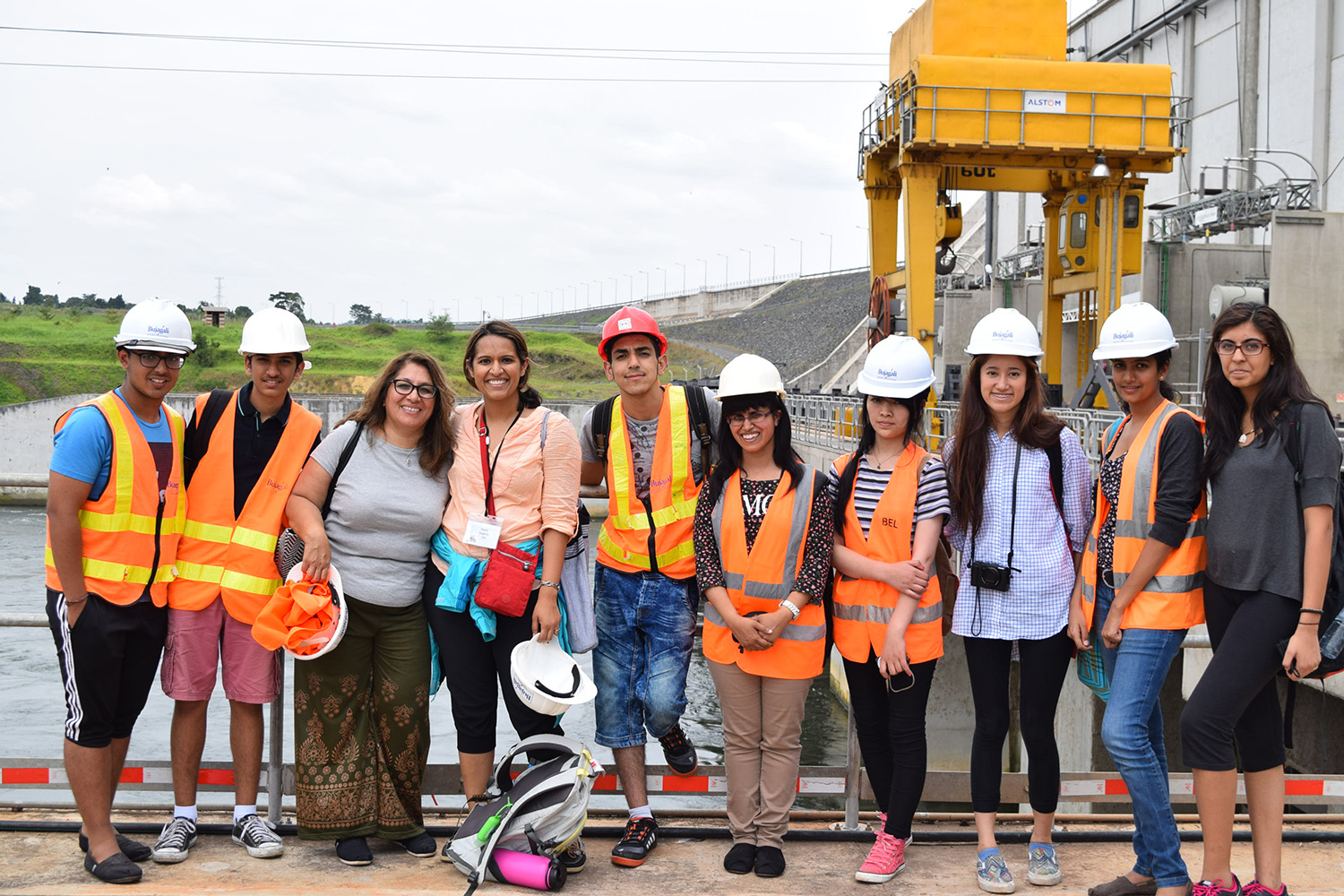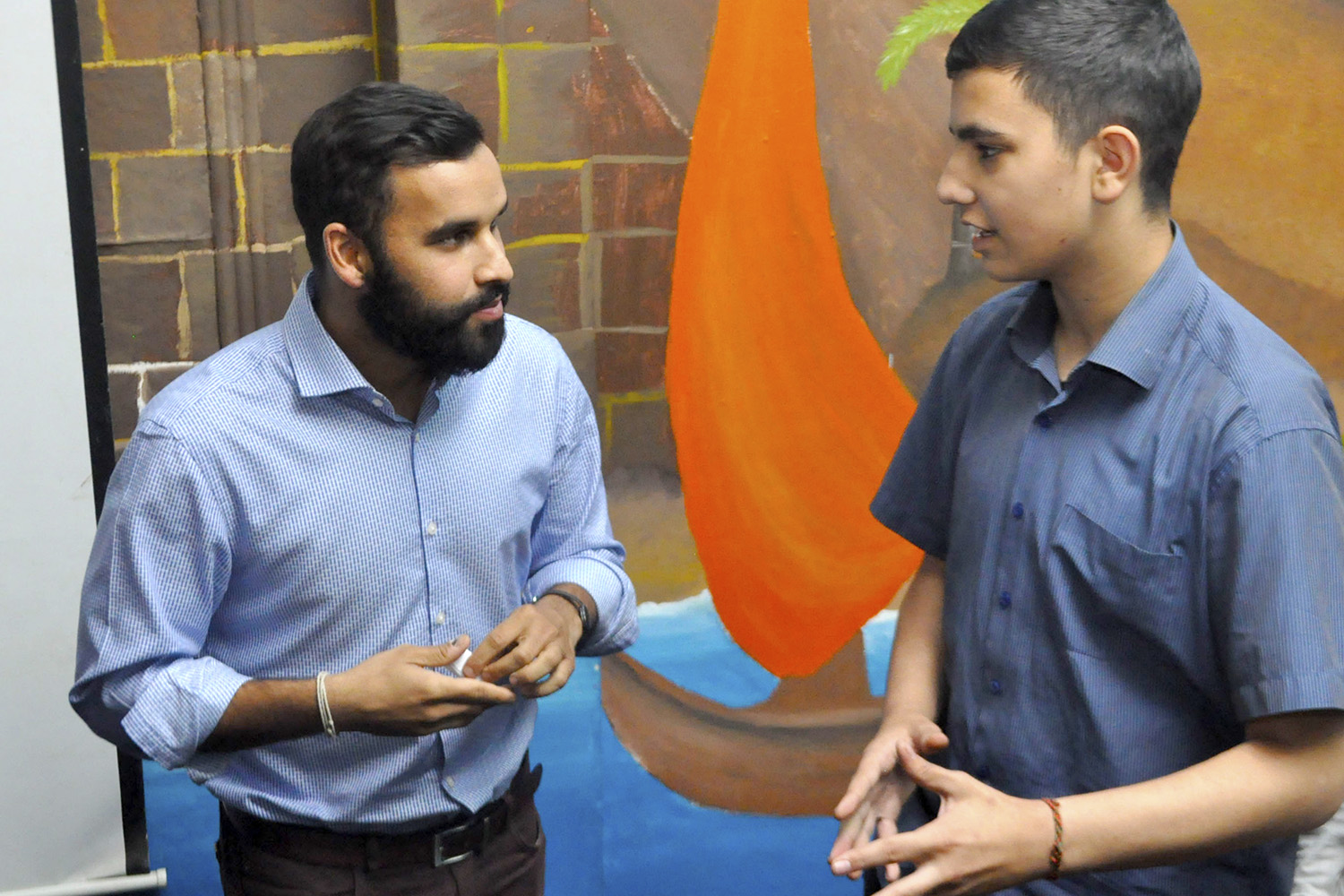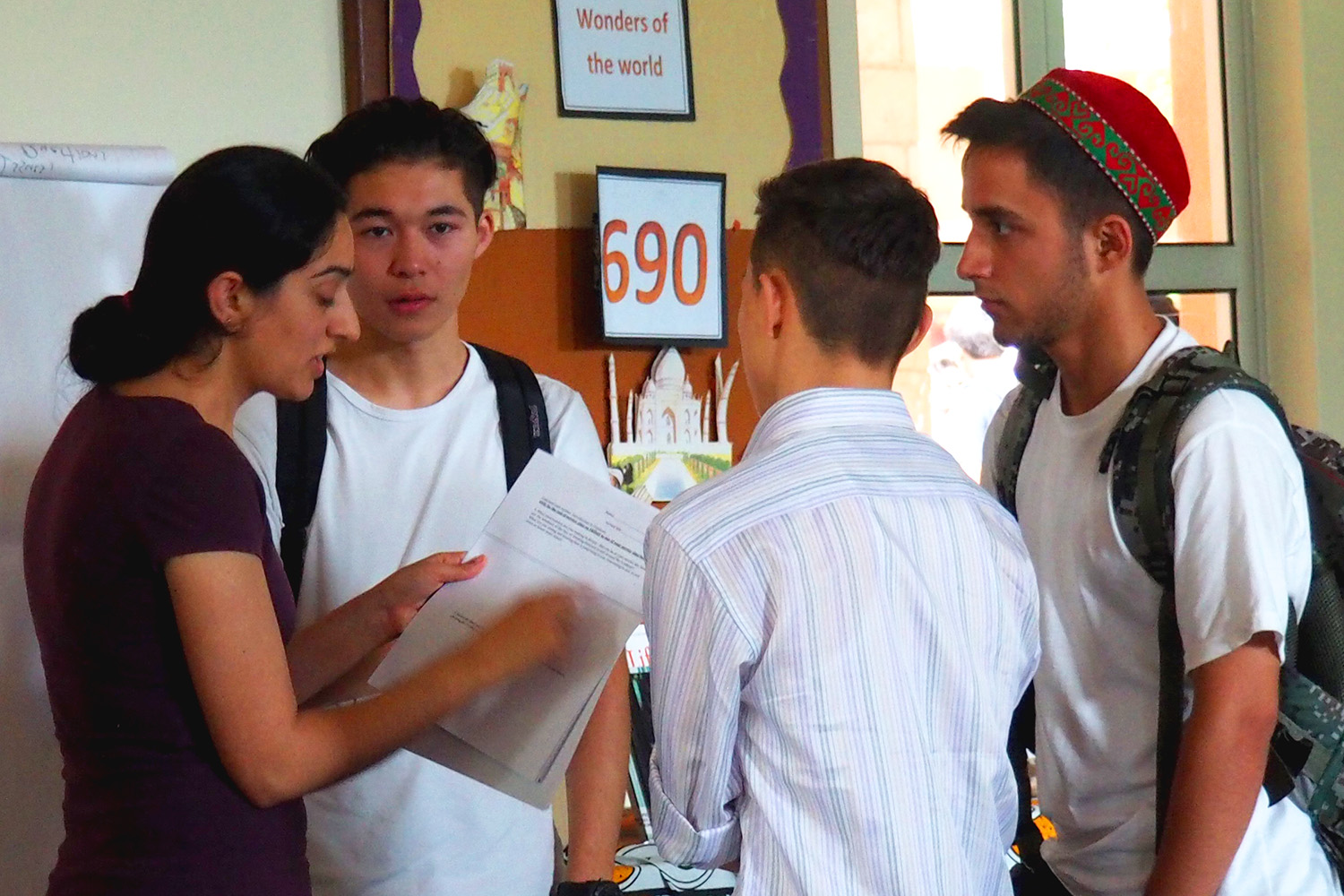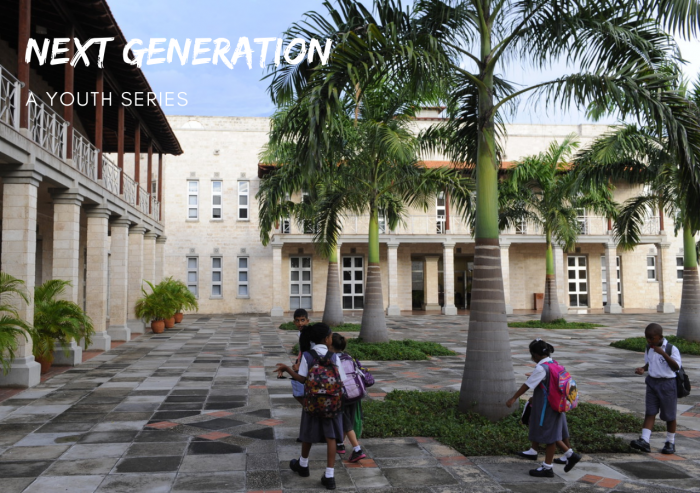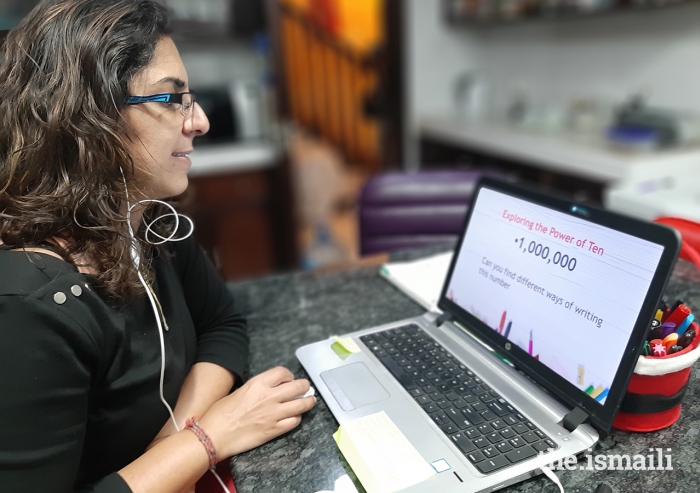Two camp sessions were held in June and July at the Aga Khan Academy, Mombasa. Campers engaged in community service, explored Kenyan culture and visited projects of the Aga Khan Development Network in the surrounding region. They gained extraordinary experiences, created new friendships and made memories that will no doubt be cherished for many years.
Serving and learning
Over the course of each three week camp, participants volunteered with local schools and organisations. It was a mutual exchange, as the people whom they met had much to teach.
Azham Budhwani, a participant from Pakistan, says that he gained important lessons from the experience, of “appreciating others for who they are” and “wherever they come from.” He and his peers worked with local Kenyan school teachers, community leaders and students to determine what types of support were needed.
Volunteers worked at government schools, helped rehabilitate libraries and resource centres, worked with young children in early childhood programmes, assisted disabled children, kick-started sports programmes, introduced hygiene and health education, and supported academic enrichment in classrooms.
Working together with people in their own circumstances, helped Budhwani to cut through the stereotypes and see individuals for who they are. “We're one global family no matter what race or religion,” he says, and “we've got to look out for one another.”
In addition to working with schools, some Global Encounters participants partnered with Kenyan Ismaili youth on a project supporting elderly members of the Jamat in Mombasa. It was also a chance to conduct primary research, and reflect on how the values and ethics of the Shia Ismaili Muslim tradition can be applied to challenging circumstances.
AKDN in East Africa
The Global Encounters programme includes field visits to AKDN projects in the region. One of the camp groups visited the Aga Khan University Hospital in Nairobi, AKU’s new Graduate School of Media and Communications, as well as farms and factories run by Frigoken — a member of the Industrial Promotion Services (IPS) group, which is an affiliate of the Aga Khan Fund for Economic Development. Participants were able to meet leaders and community members, and understand the impact that these institutions make in Kenya and on the quality of life of the people they serve.
Aziz Bhaloo, the AKDN Representative for Kenya invited the Global Encounters participants to an Imamat Day dinner with institutional leaders and diplomats from various countries, including many of the participants’ home countries. They discussed the complexities, challenges, and opportunities in Kenya across sectors and industries.
The Ismaili Council for Uganda hosted the second Global Encounters group, and showed them a number of AKDN projects in Kampala, including the Madrasa Resource Centre, where camp participants helped to promote literacy by donating over 100 books and launching community libraries.
The Bujagali Hydropower Plant was another highlight of the tour. The 250 megawatt facility, which provides nearly half of the country’s generating capacity, is an example of the critical role that infrastructure plays in development, and the exceptional progress that is possible through public-private partnerships.
Participants also had an opportunity to meet with Jamati elders and learn about life before and after the 1972 Uganda crisis. Groups from both camp sessions stayed at Serena hotel properties, allowing them to understand the economic impact of private investment on development, and the hospitality sector in particular.
Beyond the camp
The effect that Global Encounters has on participants does not wear off when they return home. The experience is profound, says Rahim Amlani from the Democratic Republic of Congo: “There has not been one day that has passed yet that I have not talked about Global Encounters.”
The 2015 cohort of participants are now part of an alumni group that is almost 400 strong. Many deepen the service they offer within their home communities. Others continue to work in partnership with new-found friends and colleagues in Kenya.
Canadian participant Imaan Shivji is using her musical talent to raise money and awareness for Port Reitz School. The Mombasa school, which helps physically, mentally and socially handicapped children, was her Global Encounters service site.
Khushboo Shah volunteered with Ismaili elders in Mombasa and is planning a similar project in her home Jamat in Goa, India. Inspired by their time at Global Encounters, alumni from previous cohorts in Bangladesh, Pakistan, Tajikistan, Tanzania, and the United States have started projects in their home communities, created fundraising and education campaigns supporting the Aga Khan Foundation, and continued to support schools and orphanages in Kenya.
Different yet the same
One of the of the most profound aspects of the programme is the chance it offers Ismaili youth from around the world to come together.
“Global Encounters allowed me to appreciate the diverse cultures of our worldwide Jamat,” says Australian Asma Merchant, “changing my perception of culture to be more inviting towards diversity and to have a pluralistic outlook.”
Living together, sharing stories of personal struggle and resilience, playing sports, and working towards common goals, encouraged bonding and the building of lifelong friendships.
“Global Encounters made me realise that we weren't that different,” says Azham Budhwani. “Yes, we came from nineteen different countries with different cultural backgrounds. Yet, in essence, we all were the same.”
“We were all Ismailis that shared the love for our Imam. We all had come to learn and experience new things, and it was these similarities that made us this one big global family that we are today.”

